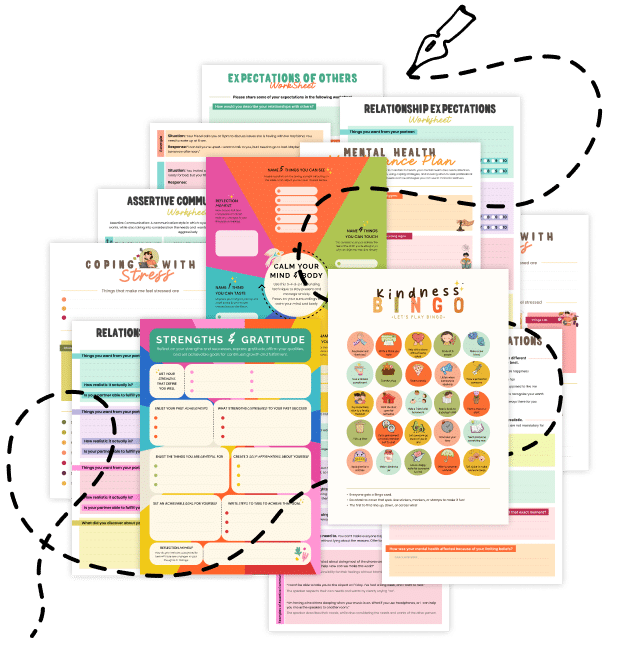20 Things About Neural Efficiency Hypothesis
Enhance your understanding of brain function and cognitive performance with these 20 insights on the Neural Efficiency Hypothesis—what it is, why it matters, and how it influences the way you process information. Discover how efficient neural processing can lead to improved learning, problem-solving, and overall mental performance.
1. What Is the Neural Efficiency Hypothesis?
The Neural Efficiency Hypothesis suggests that individuals with higher cognitive abilities exhibit lower levels of brain activation during cognitive tasks, meaning their brains process information more efficiently.
2. A Marker of Intelligent Processing
Research indicates that more intelligent individuals often show less brain activation in certain areas during problem-solving, reflecting a more streamlined, efficient neural process.
3. Energy Conservation in the Brain
Efficient neural processing means that your brain uses less energy to perform complex tasks, allowing for faster and more effective information processing.
4. Insights from Neuroimaging Studies
Functional neuroimaging, such as fMRI and PET scans, has provided evidence that experts in various fields exhibit reduced brain activation when engaged in domain-specific tasks.
5. Balancing Speed and Accuracy
Neural efficiency is associated with a better balance between processing speed and accuracy, enabling quicker decision-making without sacrificing precision.
6. The Role of Practice and Expertise
Extensive practice in a particular domain leads to neural efficiency, as the brain becomes adept at performing the required tasks with less effort over time.
7. Adaptive Cognitive Resource Allocation
Efficient brains allocate cognitive resources dynamically—focusing intense energy only when necessary and conserving it during routine or well-practiced activities.
8. Reducing Cognitive Load
Neural efficiency helps manage cognitive load, allowing for smoother multitasking and reducing the mental fatigue associated with prolonged concentration.
9. Related to Cognitive Load Theory
The concept aligns with Cognitive Load Theory, which examines how our brains manage information processing and emphasizes the importance of reducing unnecessary mental effort.
10. Impact on Learning and Memory
Efficient neural processing can enhance learning outcomes and memory consolidation by minimizing distractions and optimizing the brain’s storage capacity.
11. Improved Problem-Solving
By processing information more efficiently, neural efficiency contributes to better problem-solving skills, as the brain can quickly identify patterns and solutions.
12. Expertise Across Domains
The phenomenon is observed not only in intellectual tasks but also in motor skills and creative endeavors, where experts show streamlined neural activity.
13. The Role of Neural Plasticity
Neural efficiency is closely linked to neural plasticity—the brain’s ability to reorganize and adapt in response to learning and experience.
14. Influence of Genetic and Environmental Factors
Both genetic predispositions and environmental influences, such as education and training, contribute to the development of neural efficiency.
15. Measuring Neural Efficiency
Researchers often assess neural efficiency using brain imaging techniques and performance tests, comparing activation levels among individuals with varying expertise.
16. Applications in Educational Settings
Understanding neural efficiency can help educators tailor teaching methods to enhance learning by focusing on techniques that reduce unnecessary cognitive load.
17. Enhancing Workplace Productivity
In professional environments, fostering practices that improve neural efficiency—like regular breaks, focused training, and effective stress management—can boost productivity.
18. Lifestyle Factors Matter
Healthy lifestyle choices, such as regular physical exercise, adequate sleep, and balanced nutrition, support neural efficiency by promoting optimal brain function.
19. Potential for Cognitive Training
Emerging research suggests that targeted cognitive training and brain exercises can potentially enhance neural efficiency, leading to better overall cognitive performance.
20. Related Topics to Explore
- Cognitive Load Theory – Understand how managing mental workload optimizes performance.
- Neurotransmitter Balance – Explore how a balanced chemical environment in the brain supports efficient processing.
- Default Mode Network – Learn about the brain network active during rest that plays a role in efficient cognition.
- Brain Glymphatic Function – Discover how the brain’s waste clearance system impacts overall neural health.
- Cognitive Flexibility Games – Engage in activities that promote adaptive thinking and neural efficiency.
Quick Tips to Boost Your Neural Efficiency
- Practice Deliberate Learning: Engage in focused practice in areas of interest to build expertise and reduce cognitive effort.
- Manage Cognitive Load: Break tasks into smaller segments and take regular breaks to avoid mental fatigue.
- Maintain a Healthy Lifestyle: Prioritize exercise, sleep, and nutrition to support overall brain function.
- Utilize Mindfulness: Incorporate mindfulness practices to enhance concentration and reduce unnecessary mental chatter.
- Challenge Your Brain: Regularly engage in puzzles or new learning activities to stimulate and maintain neural plasticity.
Embrace these insights and tips to harness the power of Neural Efficiency, empowering you to optimize your cognitive processes and achieve peak mental performance!


